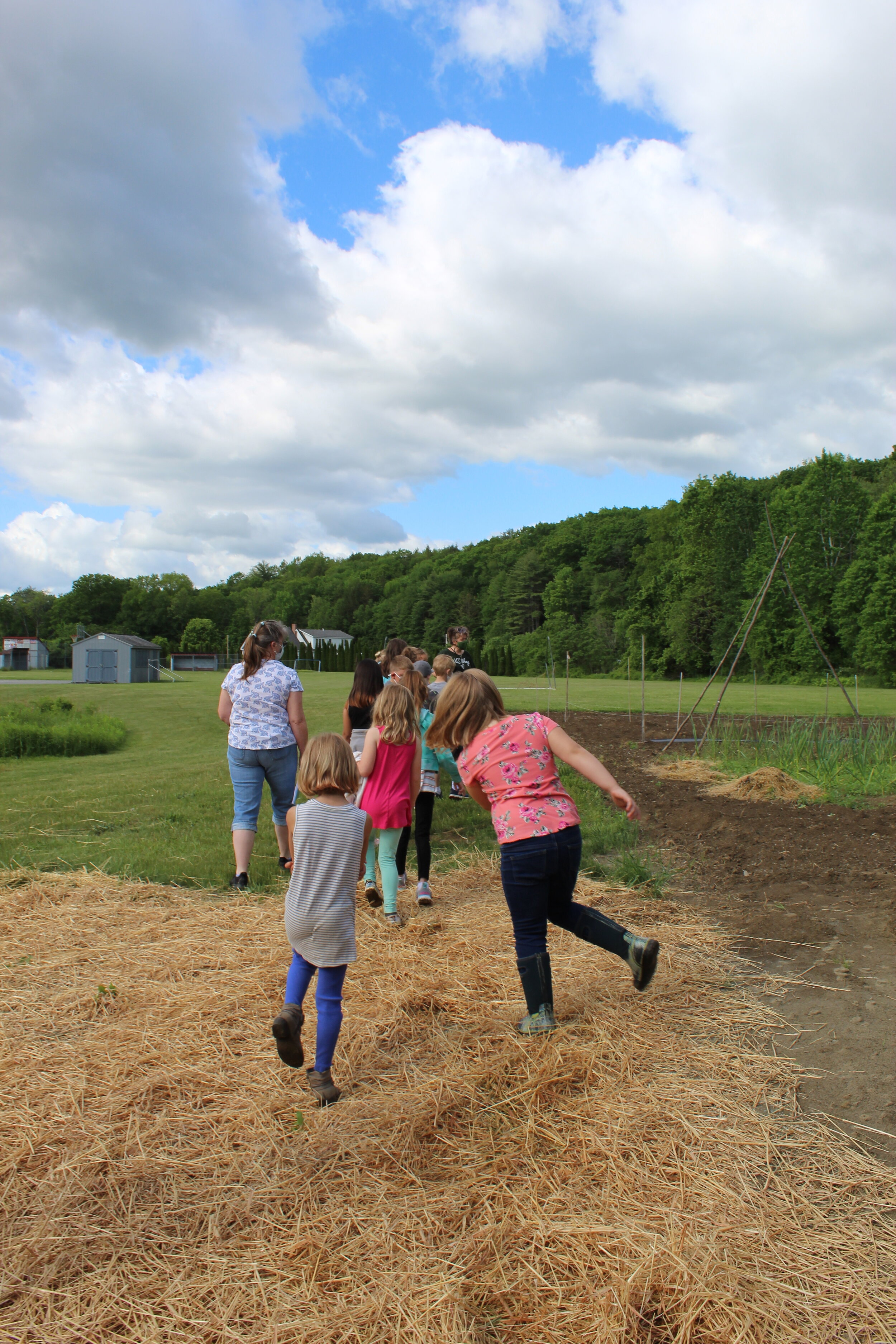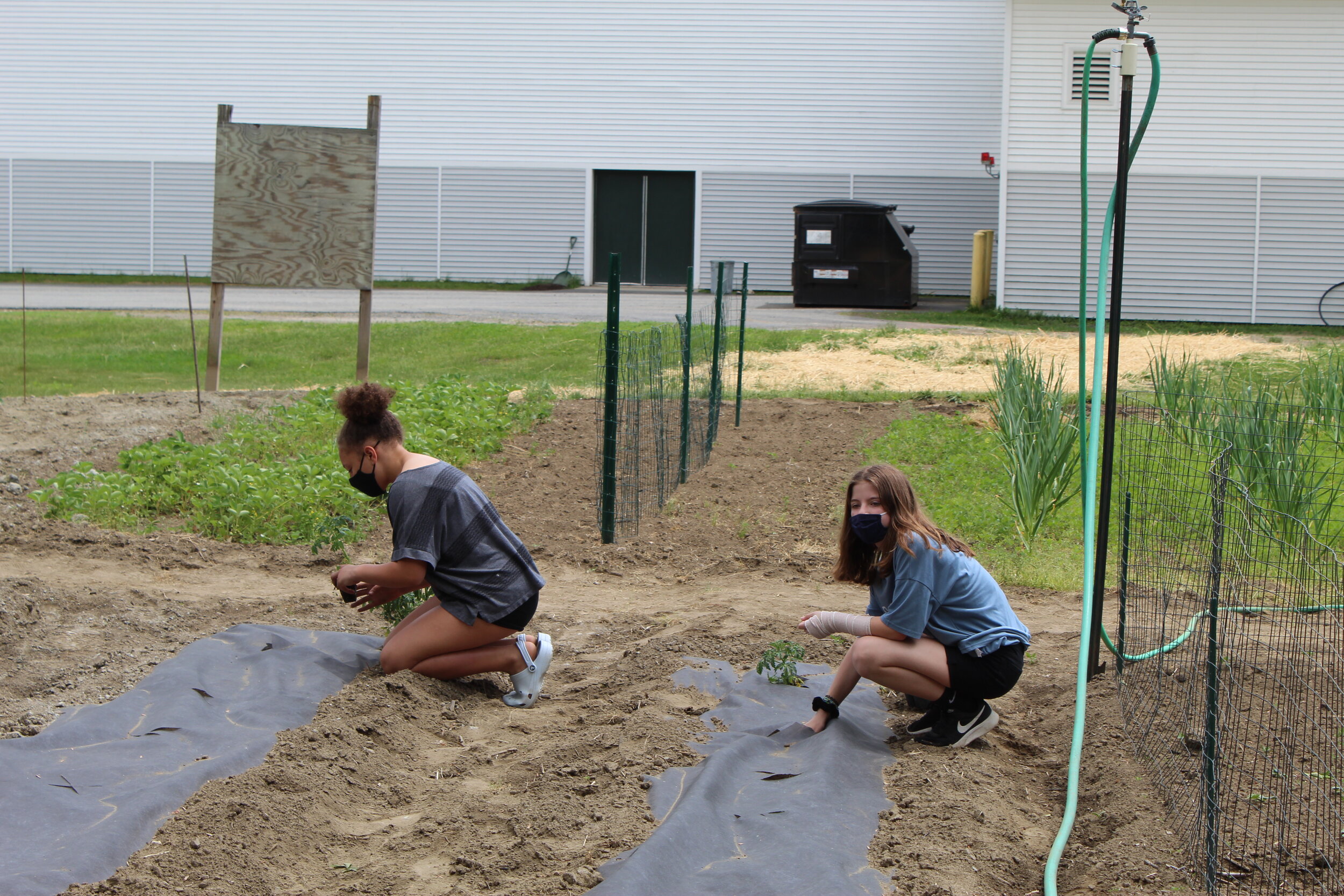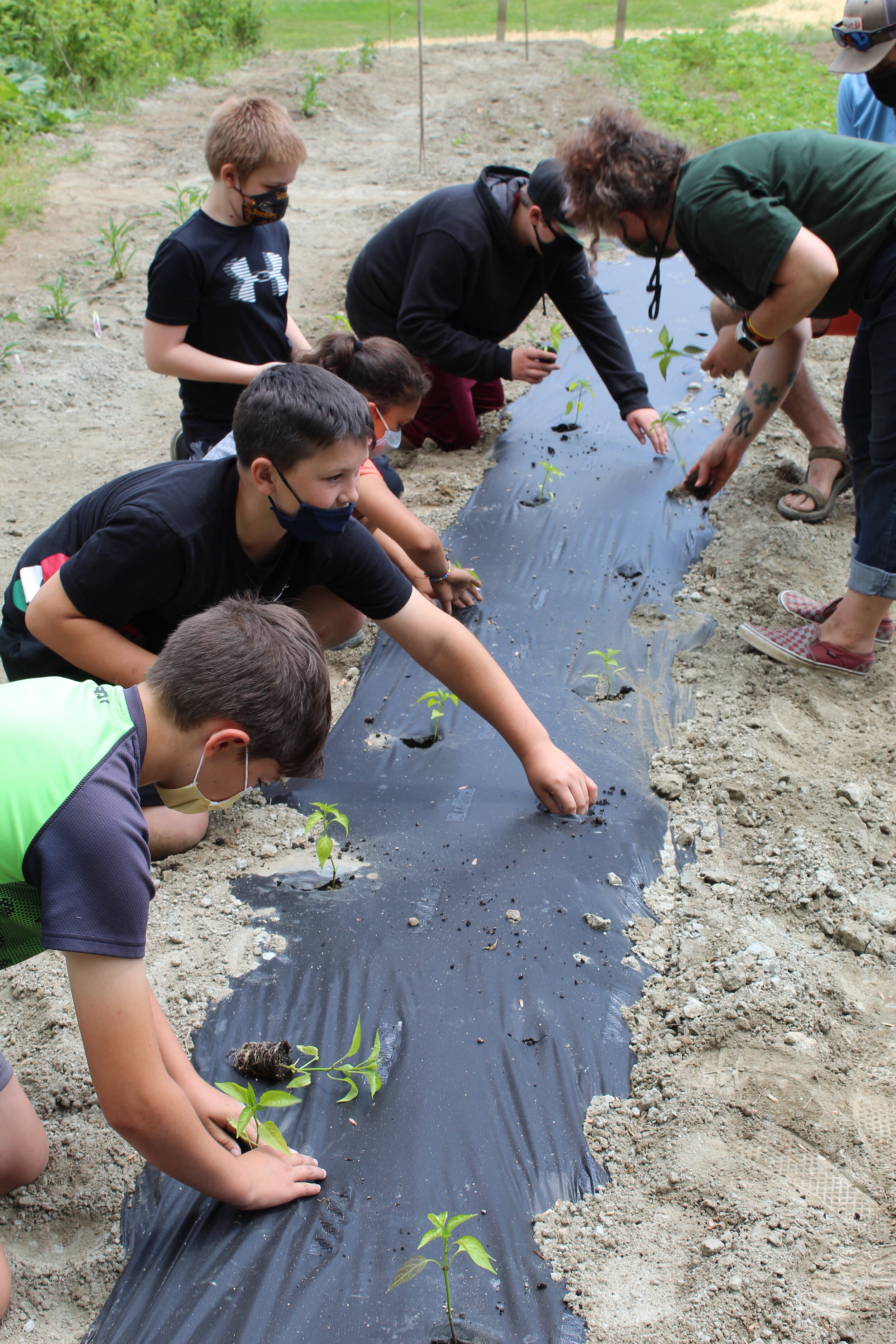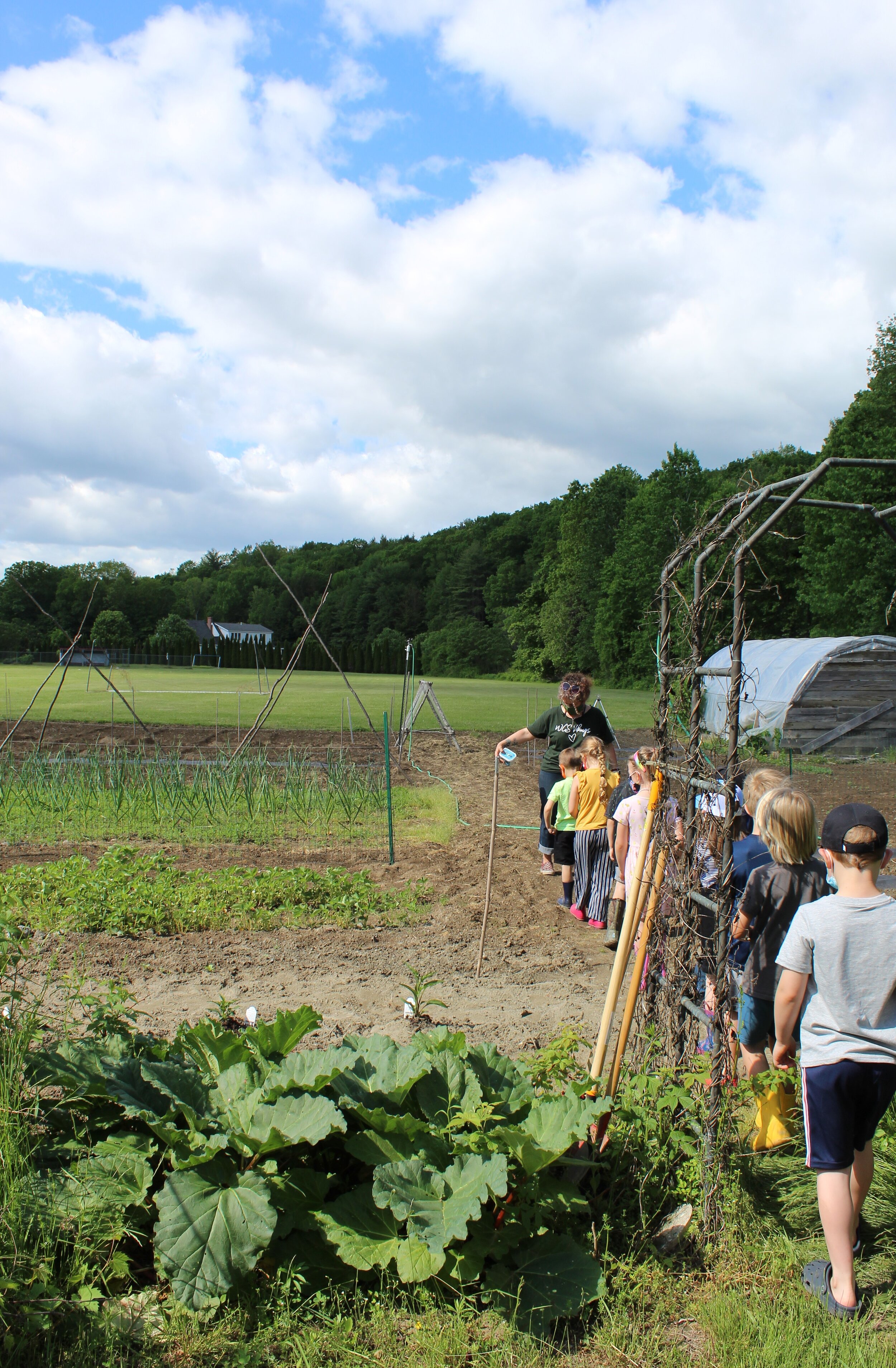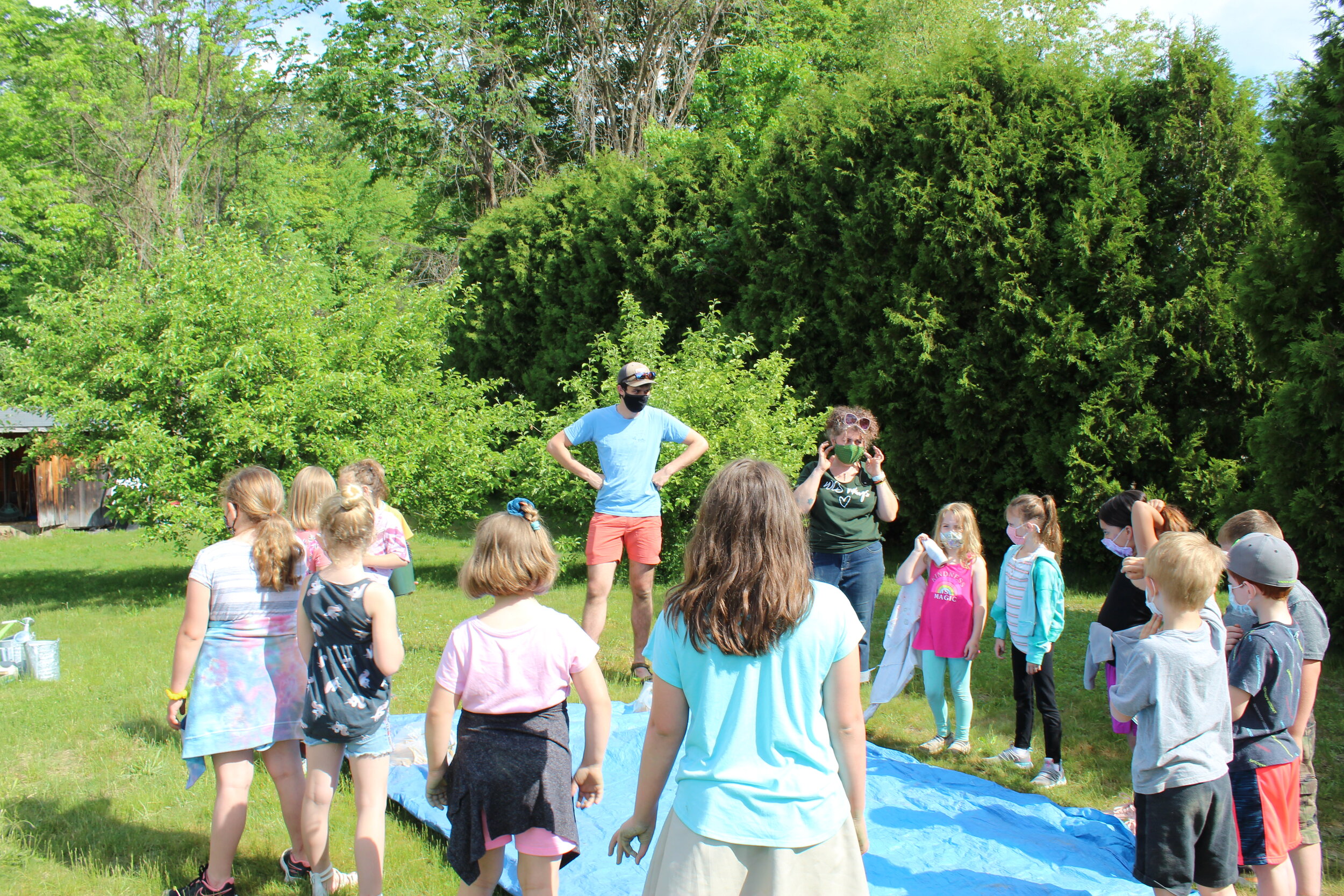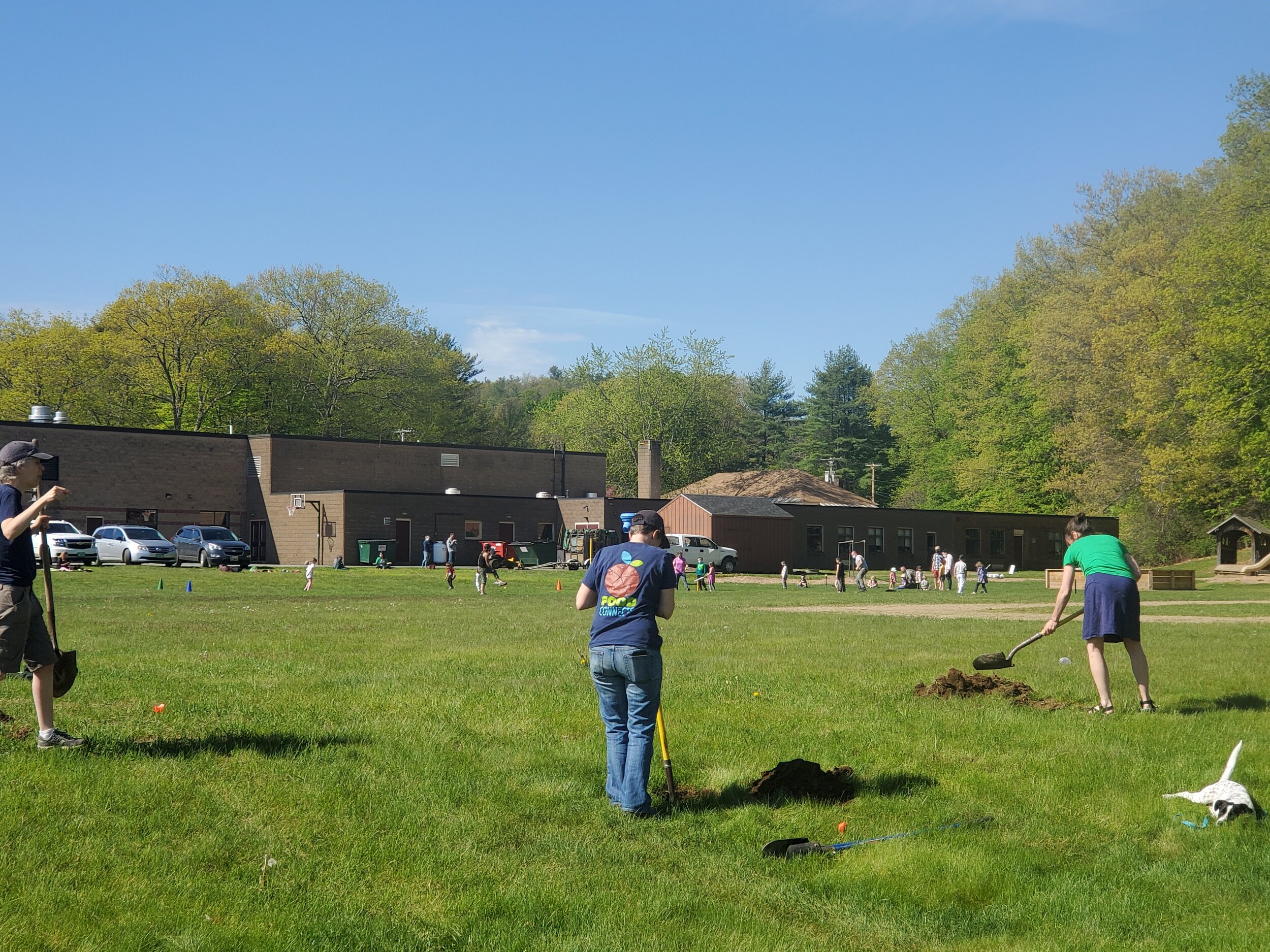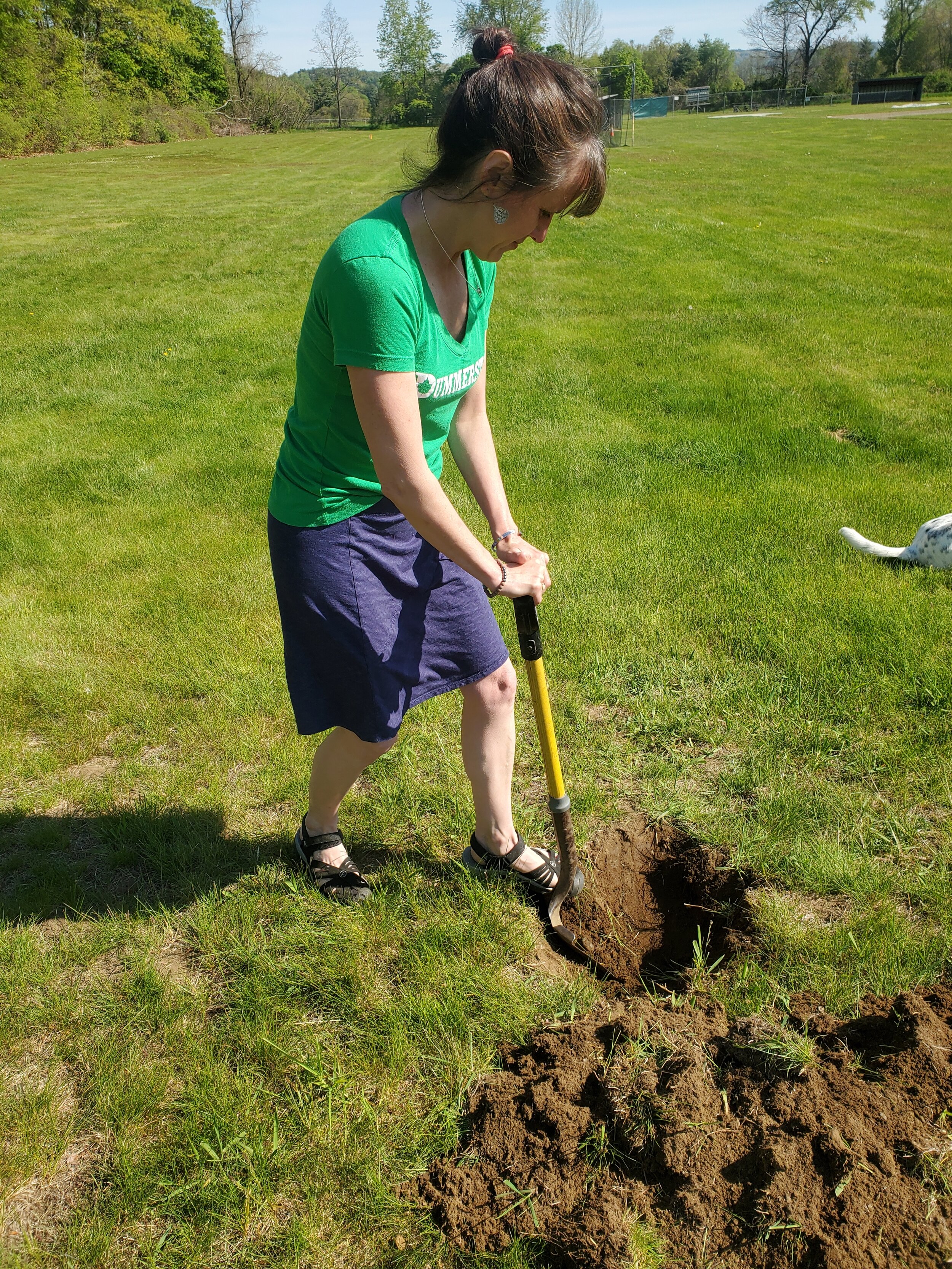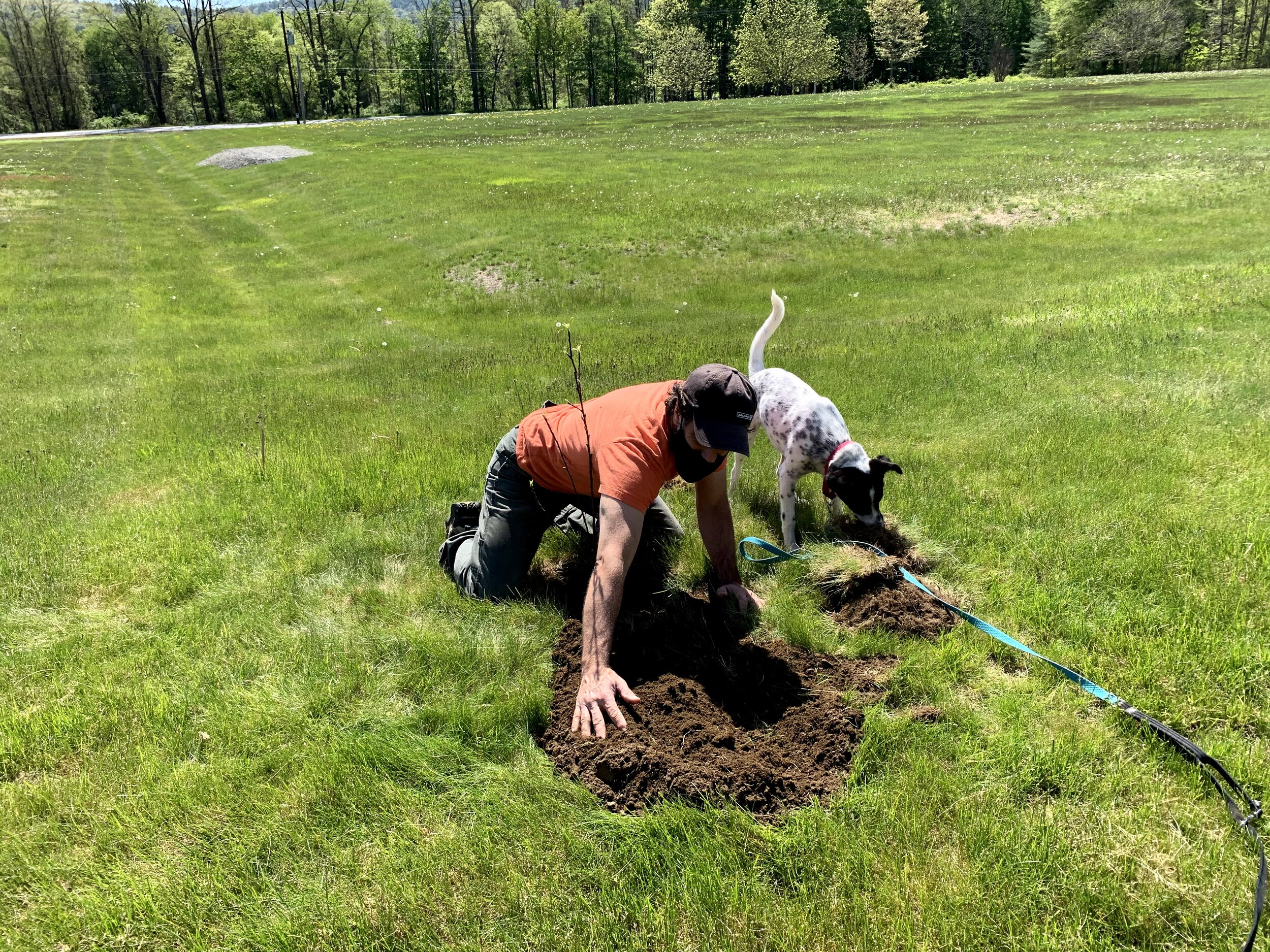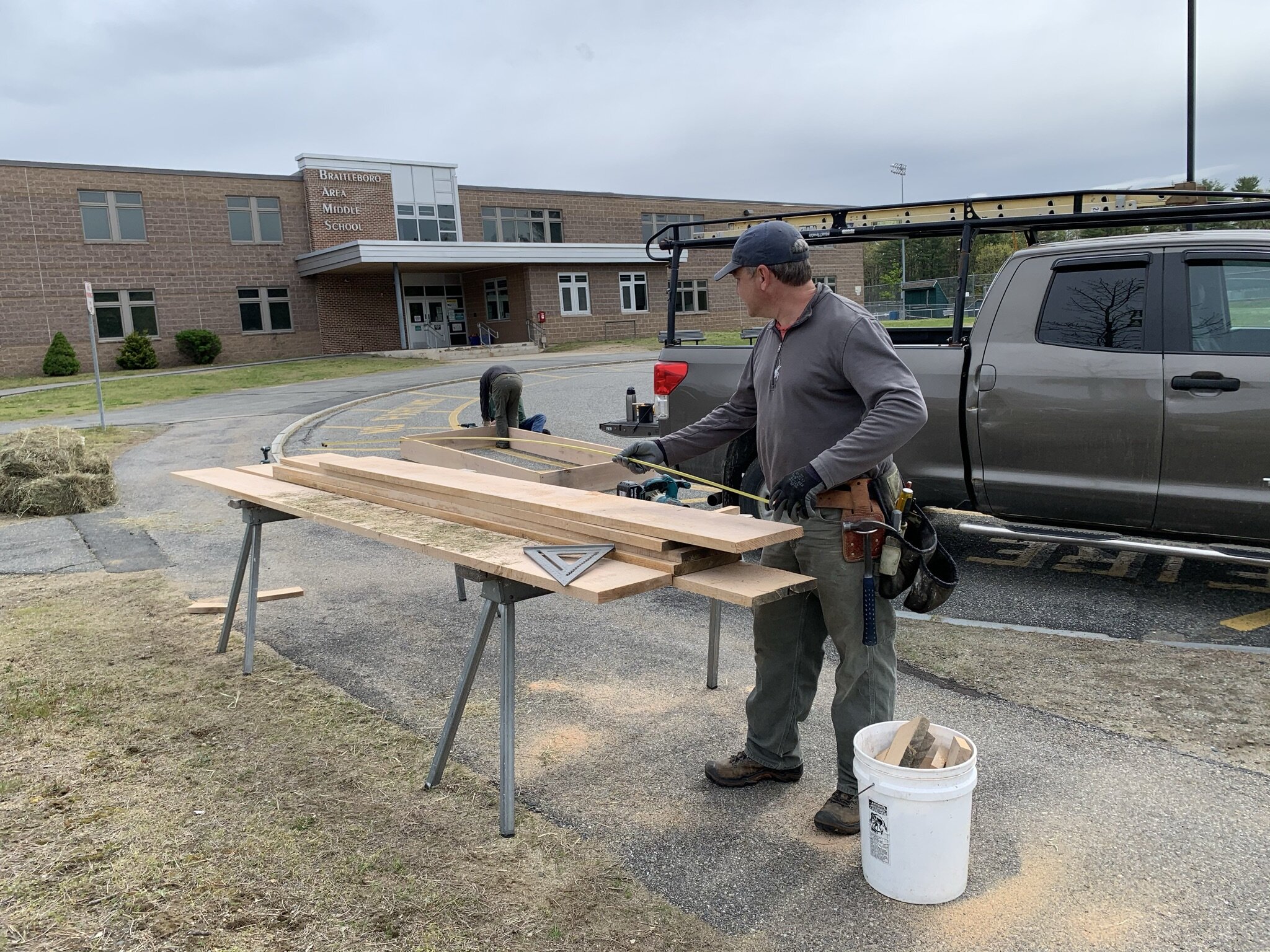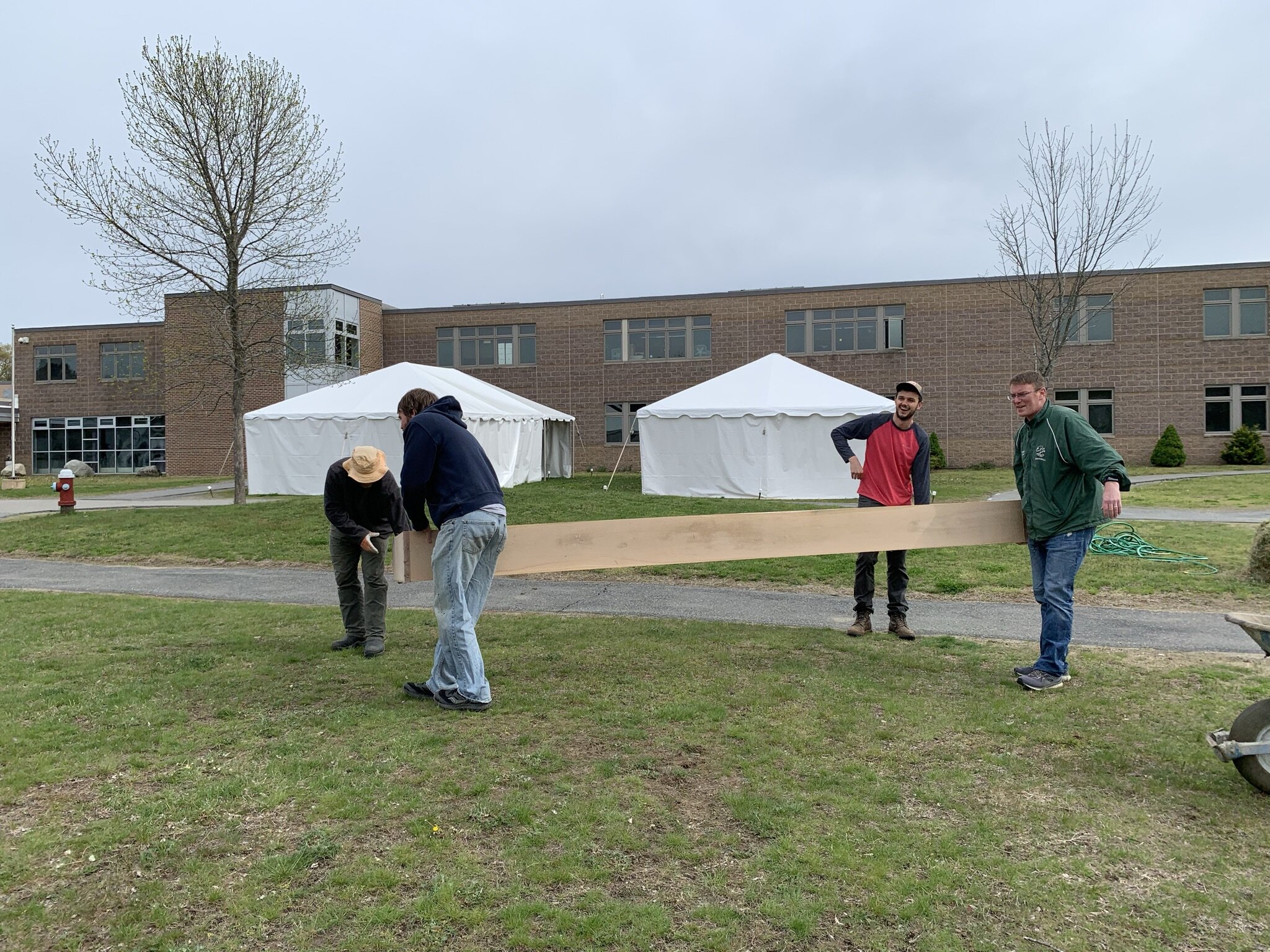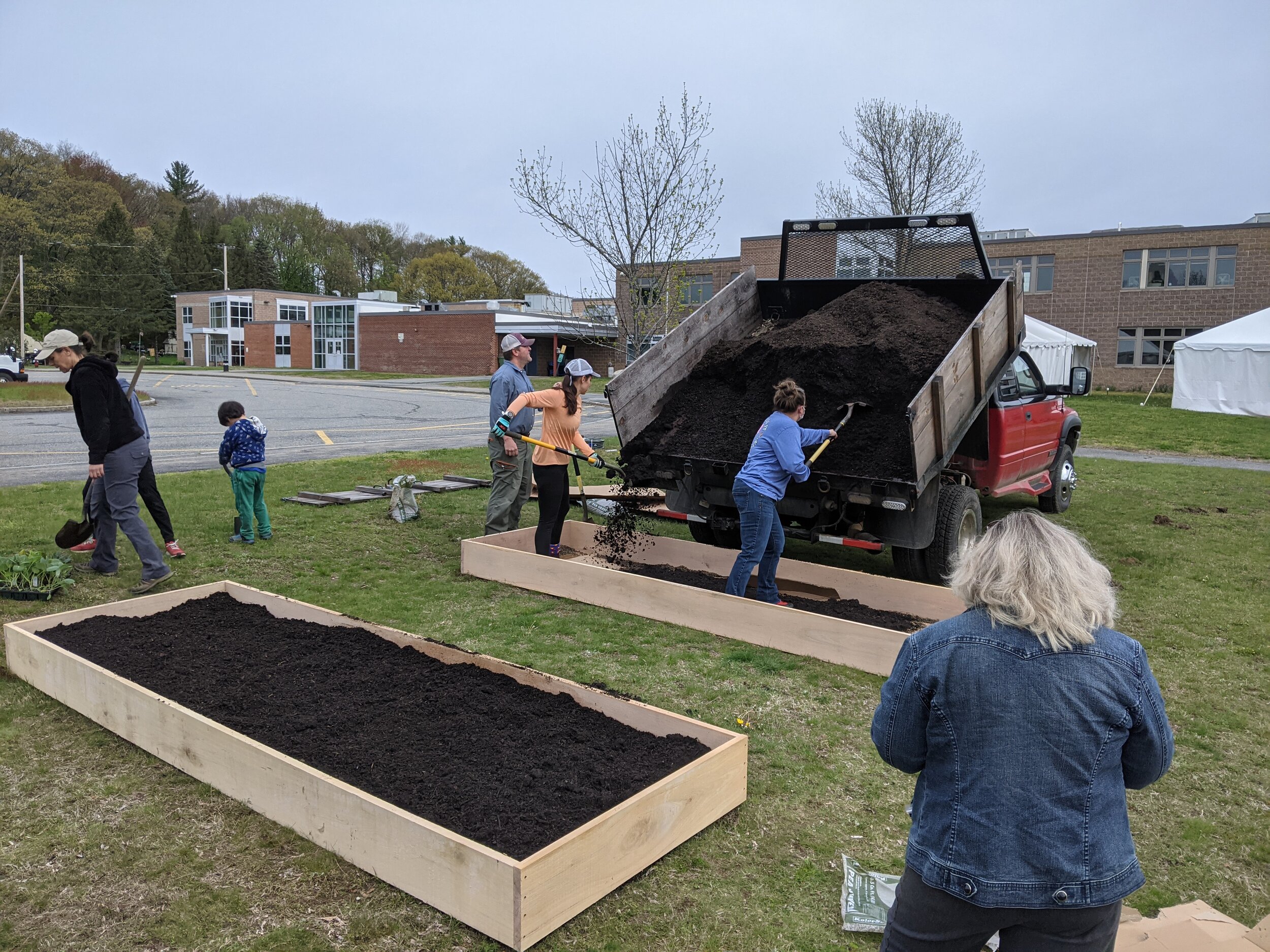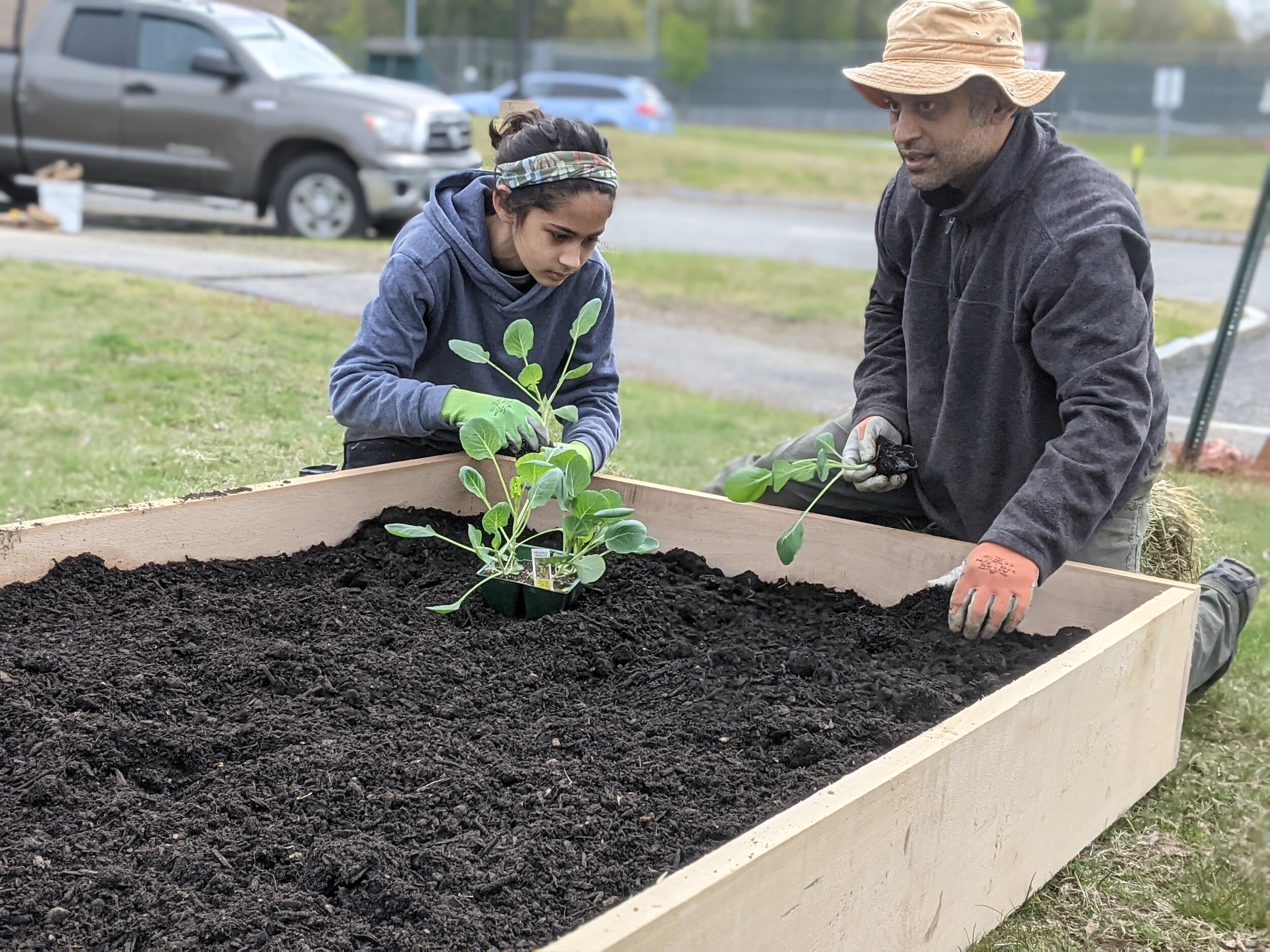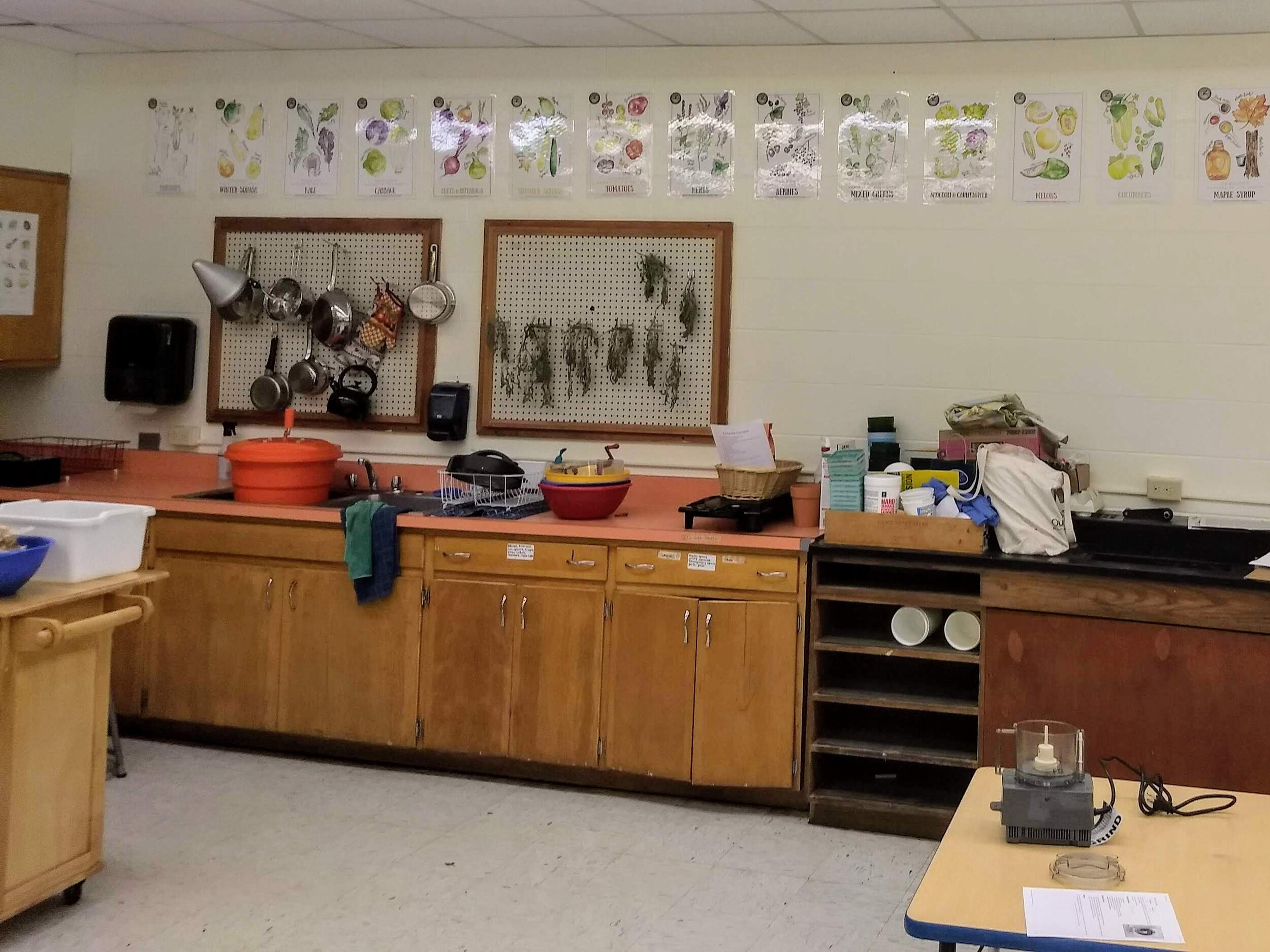Sprouting kits, blooming gardens, outdoor exploration, and more—Brattleboro schools had a great year of Farm to School activities. Over the past school year, we have seen the flexibility and adaptability of Farm to School programs. At Food Connects, we work with schools to coach teams and implement Farm to School activities. This year, Brattleboro Savings & Loan (BS&L) sponsored a portion of our work in the Brattleboro schools.
"At BS&L, we understand that good nutrition and access to healthy foods is critical to developing lifelong healthy eating habits and overall good health,” says Dan Yates, President and CEO at BS&L. “That's one reason we support this important program."
Students gardening at Green Street School.
One of the most effective ways to get kids to eat new foods is by engaging them in growing their fruits and veggies. Taste tests and school gardens throughout the Windham Southeast School District (WSESD) bring these experiences daily. The Farm to School efforts don’t end when the school year finishes either! A perennial Farm to School question is, what do you do with the gardens when students aren’t there? Each school has a unique answer to this question; the WSESD partners with Food Connects to ensure the gardens thrive throughout the year.
Tara Gordon, Food Connects Garden Coordinator, has worked hard all summer tending to the plants and inviting families into the space. Tara’s consistent presence ensures the beds don’t get out of hand, whether it’s an early-season drought or soaking rains. She is also a friendly guide for families interested in learning more over the summer months.
“It's amazing to see the gardens come to life in the summer, the colors, the smells, the heights and fullness of the plants, and of course the fresh fruits and vegetables we can enjoy, making the garden such a wonderful place to spend time in the summer.” reflects Mary Kauffman, Oak Grove School Principal. “Each month, Tara can be seen throughout the school working with classes, both inside and outside, to learn more about gardening, harvesting, and cooking!”
Summer Garden Coordinator, Tara Gordon.
Support from Brattleboro Savings & Loan helps Food Connects bring the needed resources to Tara and Oak Grove for successful programs, whether that’s cooking supplies, seeds, community connections, or a partner in curriculum development. Visit Oak Grove during their annual Harvest Dinner to see the fruits of everyone’s work—delicious foods grown on the campus and engaged students proud of the healthy meal they had a part in creating.
For many, Farm to School is the highlight of the day, principals included! “I love spending time in classes when Tara is the guest visitor,” says Mary Kauffman. “We get to learn about the harvest, see how easily it can be included in our everyday lives, and get to taste something delicious.”






